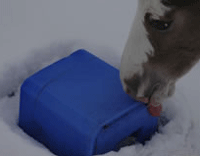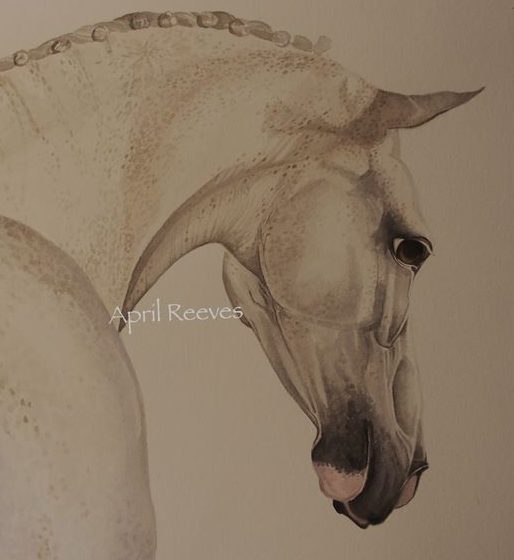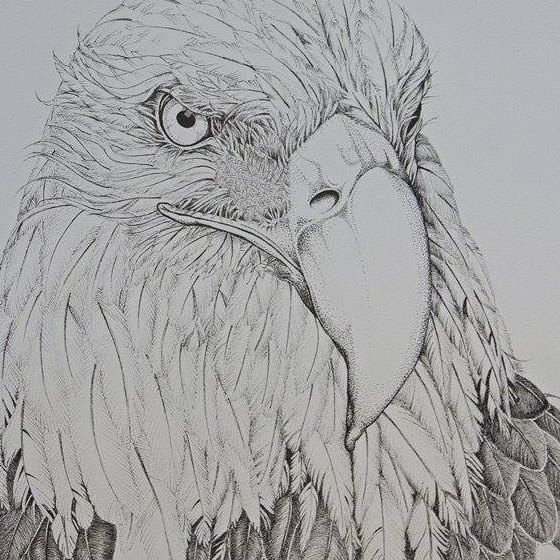
Blue cobalt salt block
Question: When we went to buy my new horse a salt block there were so many choices! I was told the brown one was best, then a customer in the store told me to buy the red one, so I didn’t buy anything! And they have blue and white ones too!! Help! Are the colors poisonous?
Answer from April Reeves: In my opinion, the perfect salt block for horses does not exist yet (hint to equine feed manufacturers – form one from sea salt please).
Red salt blocks: contain iodine – choice of horse owners. Same as our table salt (iodized).
Blue: contains iodine and cobalt – while there is no hard evidence that cobalt is bad or toxic for horses, many owners leave the blue behind for the cattle owners. Horses need cobalt in their diets – about <0.05 ppm. It is incorporated into vitamin B12, by the microorganisms in the cecum and colon and is an essential nutrient only if sources of B12 do not exist in the horse’s diet (Merck Veterinary manual: http://www.merckvetmanual.com/mvm/index.jsp?cfile=htm/bc/182602.htm).
White salt blocks: contain nothing but plain salt (sodium chloride).
Brown blocks: these vary according to the manufacturer (read label). Generally, they contain selenium, and are more of a mineral block. I use them in conjunction with a regular iodine salt block.
I have heard that some people will not feed a colored block as the colors are from dyes. While I am not comfortable eating dyes myself, there are no studies for horses that have died from dyes, and personally, horses do not live long enough to accumulate such small quantities of contaminants like a human would. I still want to see that white sea salt block one day though (hint hint).
I have never heard of any study or research about any horse dying from incorrect salt intake, just from lack of salt (where they eat dirt and sand and die from sand colic instead). If anyone out there has valid information I would love to hear it. I have heard of horses not cleaning up their feed because owner’s add too much salt in it. Horses are smarter than we give them credit for, and will adjust their feed imbalances as they feel appropriate.
I let my horses take in the salt levels they require, by themselves (I do not add it to feed). None of the horses are stalled daily, and they do not chew their blocks in boredom.
The next time you go to a store, ask the people who work there for advice. Try not to walk out without a salt block; it’s your horse that will pay the price.












I use the Redmond Rock Julie Goodnight recommends. ;)
I have found the Redmond Rock to be the best as well now that I’ve used it for a few months. We didn’t get it into Canada (at least in my area) until this summer, but I am impressed with the mineral counts. It’s similar to the Himalayan Salt for humans: minerals and trace elements that you may otherwise not get daily all in one package. I would not hesitate to recommend the Redmond Rock. Thanks Erica.
If you are looking for the best salt possible. Feed the White Mixing salt in the horses bucket with their feed and wet it down. It forces them to drink water and keep hydrated. Horses don’t get anything out of the blue blocks because their tounges are not the same as cattle. Those blocks are used for cattle not horses. You are throwing your money away by buying the blocks. White Mix salt lasts 10X longer and goes that much further. Feeding rate is a shot glass per feeding, make sure to WET your meal down.
I can’t agree with feeding a horse measured quantities of salt. While there may be a few horses that need the extra push to stay hydrated, or specific exercises and disciplines such as endurance demands the extra salt, the majority of horses do not. Horses are far more intuitive about their needs than we are. Leave it alone is my motto, but do watch your horses and pay attention. Humans need to learn to get out of the way sometimes….
um i still dont get it does my horse NEED salt or is it just for whatever.How many times a week do i feed it to my horse and what color HELP ME!
Same reason you need salt: it helps the horses body to metabolise, absorb and retain minerals and fluids. Without it, they lose the ability to sweat and other organ functions. Salt is a main ingredient for all mammals.
April, there is actually one from sea salt! It’s where I get my salt for my horses, Sea-Agri. I feed it free choice, just pour the salt into a tub and leave that in the field.
The main difference between Sea-Agri and Redmond is that sea-agri is made from dehydrated sea water (still loaded with minerals) and Redmond is salt mined from the earth. Redmond’s salt is orangey coloured with a much higher iron level, whereas Sea-Agri is grey/white with much higher Magnesium levels and small amounts of iron. From the research I’ve done, iron is the most over-supplemented mineral in the horse’s diet – why? Because there is iron in almost everything they consume – grass, hay, water, etc. Horses only need around 40 ppm of iron as a daily requirement. Sea-agri and redmond both have mineral analysis charts you can check out to compare further.
Sea-agri has some distributors in Canada, so shipping or pick up in Canada is definitely available, it’s just not it all the tack stores like Redmond. The Sea-agri website is really informative and there’s actually so much more that you can use their salt for.
And to add to my comment, here is a comparison of the different levels of minerals in each of the salt brands: http://www.seaagri.com/docs/competitive_analysis_smfa_creation_redmond_midwest_labs_nov2012.pdf